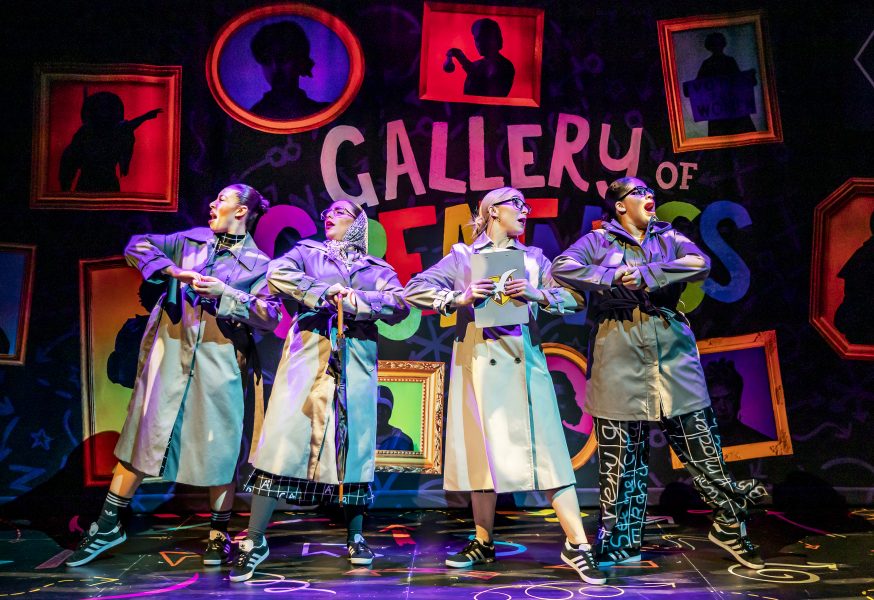Review: Fantastically Great Women Who Changed the World

Lucy Evans, Online Features Editor, reviews the new feminist musical Fantastically Great Women Who Changed the World
Fans of Kate Pankhurst’s book Fantastically Great Women Who Changed the World will be pleased to hear about its musical adaptation, which details the lives of some of history’s remarkable women. I visited the Exeter Northcott Theatre to see these women of the past bring Kate Pankhurst’s book to life. Before the show, the mood was palpable and electric: the audience was predominately made up of women, both young and old, ready to venture into a world full of the women that came before us.
The show follows young Jade as she gets lost in a museum on a school trip to the Gallery of Greatness. She enters this alternate reality where she meets the brilliant women whose portraits hang in the gallery. As she faces personal problems, the great women help her realise who she is and how she can be great.
From the opening number, which started with the four main cast members running through the audience, it was clear that the show was going to be vocally outstanding. Christina Modestou’s high notes were used for comedic effect in her role as Jane Austen but still wowed the audience.
Kirstie Skivington brought Emmeline Pankhurst to life, a character of special significance considering she is one of Kate Pankhurst’s ancestors. The characteristic colours of purple and green were incorporated into the costumes, and her accompanying song perpetuated the motto “deeds not words”. It conveyed the important message that women have pushed and continue to push for tangible actions instead of empty words.
One of my favourite moments from the show was Jade’s encounter with Freida Kahlo, brought to life by the wonderful Jade Kennedy. The colourful, energetic song was clearly an audience favourite and was extremely memorable, the chorus echoing in my head long after I left the theatre. The segment highlighted the show’s inspiring message: everyone has their own unique passion and artistic flare that can have a positive impact in the world.
The segment highlighted the show’s inspiring message: everyone has their own unique passion and artistic flare that can have a positive impact in the world
Whilst there were too many great women portrayed to mention, the four leads wonderfully juggled the many different women through careful and meaningful characterisation. It was not only accents and costumes that differentiated the characters, but also small but telling mannerisms and identifiable traits, meaning that each woman was immediately recognisable. In addition to the great women already mentioned, Marie Curie, Rosa Parks, Amelia Earhart, and Mary Seacole were other noticeable portrayals.
The stand out of the show was the young Kudzai Mangombe, who starred as the schoolgirl Jade, who became lost in the Gallery of Greatness. She perfectly captured the feeling of being frustrated with life and wanting to make a difference by finding your own voice. The women taught Jade lessons that she could then apply to her own life. I couldn’t help but feel that this was a symbolic moment, as it mirrored Mangombe’s own experience of working alongside an accomplished cast and looking up to their careers.
The show finished with a mashup of the songs that audience members were allowed to film, making the musical even more memorable and easy to share on social media.
The show’s message that all women are fantastically great and change the world simply by existing is a poignant one. I hope that it resonated with the women, young and old, in the audience. It was impossible to leave the Exeter Northcott Theatre without a spring in my step, as the pop style songs were stuck in my head. Most importantly, though, the show got me thinking about all the women who worked so hard to change the world and hence provided me with the freedoms I enjoy today.
To find out more about Fantastically Great Women Who Changed the World and upcoming show dates, click here.


